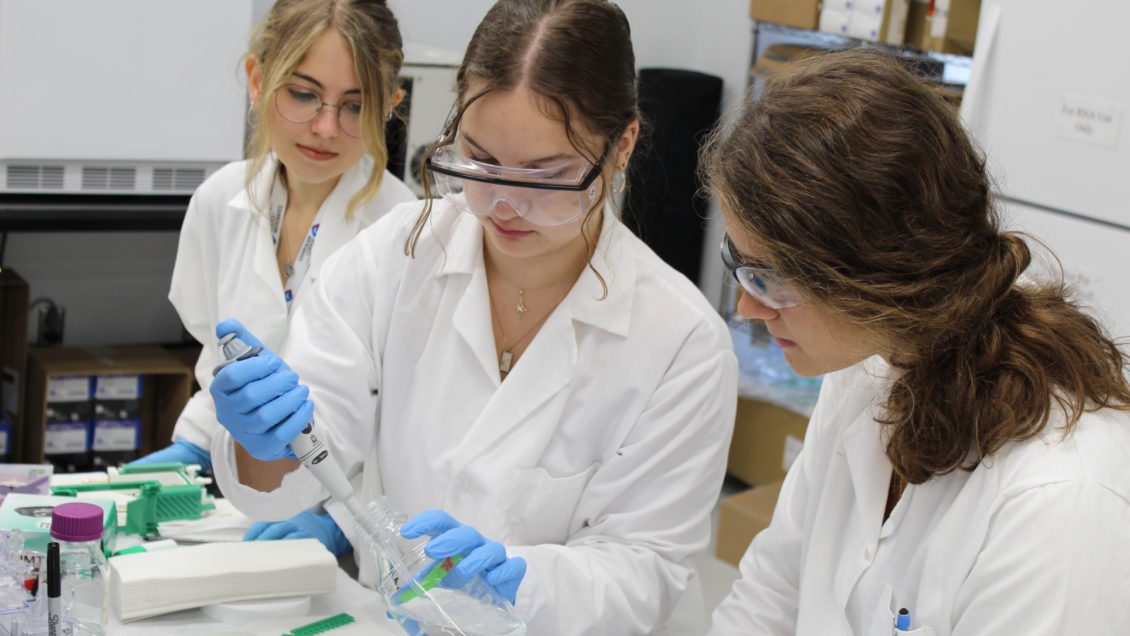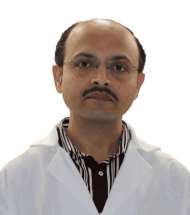
Clemson researcher Sachin Rustgi believes the future of agriculture is in the hands of today’s youth and he is using his knowledge to help train tomorrow’s workforce.
Rustgi, an associate professor of molecular breeding in Clemson’s Advanced Plant Technology Program at the Pee Dee Research and Education Center (REC) near Florence, South Carolina, recently mentored three students from Germany as part of the South Carolina Governor’s School for Science and Mathematics Research Experience Scholars Program (RESP). This program allows high school students to join and study under South Carolina research groups between their junior and senior years. Rustgi said teaching young students about agriculture is important for sustaining the planet.

“I see working with high school students as an investment in the future,” Rustgi said. “I wish to educate students about their options at an early or decisive age when they make decisions about their careers. Many students I have worked with see agriculture as working in the dirt. They do not see it as a career. Some of the students found information technology more appealing. But when we hosted them as interns, interacted with them and showed them the breadth of research done under the broad umbrella of agricultural sciences, some of them changed their minds and decided to go for college degrees in agriculture.”
Rustgi is encouraged by working with and teaching young people.
“High school students are more soft-shelled than the graduate students and absorb things quickly, including concepts, rules and regulations, lab cultures and so on,” he said. “These students have published abstracts and papers, as well as have presented posters or have given oral presentations at conferences, which helped them build their resumes and confidence.”
Visiting scholars, Mina Oezisletici, Johanna Staudacher and Tina Ederle are from southwest Germany near Stuttgart. Back home, they attend the Johanna-Wittum-Schule school that has a well-established biotechnology program. They believe they will benefit from their 6-week study with Rustgi. Much of their work was conducted in Rustgi’s lab.
“We are interested in learning more about science,” Oezisletici said. “This (internship) was a great opportunity for us to see research in action. It also gave us an opportunity to see how research is conducted in other parts of the world.”
Although he has worked with other students from the Governor’s School, as well as local high school students and students participating in the Clemson Summer Program for Research Interns, this was the first time Rustgi participated as a mentor for RESP scholars.
“I definitely would like to participate in the program in the future and do my share in building the future workforce and educating students about different carrier options in agricultural sciences,” Rustgi said.
Randy La Cross, senior vice president for outreach and research at the S.C. Governor’s School in Hartsville, South Carolina, said collaborations such as this between the Governor’s School and Clemson’s Pee Dee REC are important.
“Dr. Rustgi deserves all the accolades and recognitions he can receive,” La Cross said. “It takes a gifted and special researcher who can engage young high school scholars in the process of real-world scientific research. We hope many of our students become future researchers.”
In addition to high school students and students from abroad, Rustgi also mentors Clemson students as an associate professor in the Clemson College of Agriculture, Forestry and Life Sciences (CAFLS) Department of Plant and Environmental Sciences. CAFLS students are afforded several opportunities to become tomorrow’s researchers. One such opportunity comes from a program known as CAFLS Advantage. In this program students engage in experiential learning opportunities to help build skills needed to succeed in the workforce. CAFLS students participate in domestic and foreign travel, as well as work with researchers to help develop these skills.
For more information, visit the Bookhart Student Services Center at https://bit.ly/BookhartStudentServicesCntr.
-END-
Get in touch and we will connect you with the author or another expert.
Or email us at news@clemson.edu
